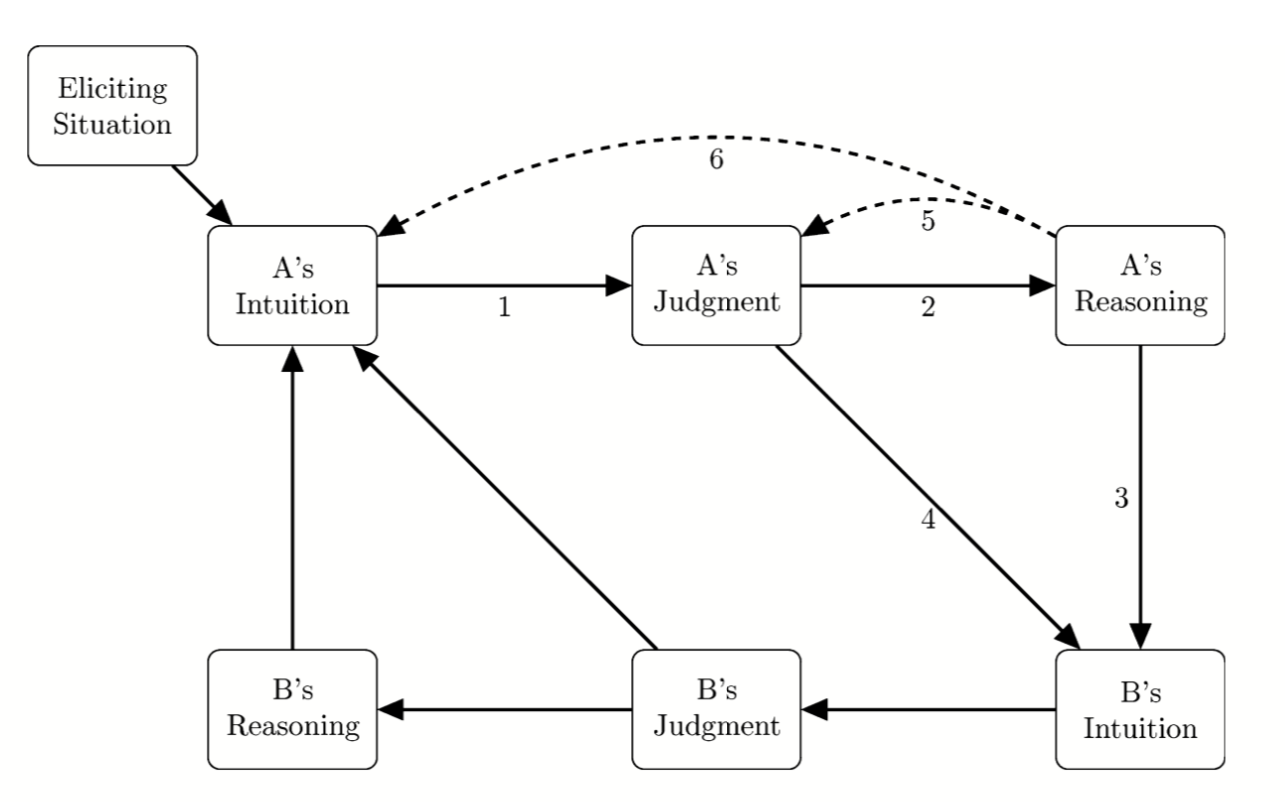Click here and press the right key for the next slide.
(This may not work on mobile or ipad. You can try using chrome or firefox, but even that may fail. Sorry.)
also ...
Press the left key to go backwards (or swipe right)
Press n to toggle whether notes are shown (or add '?notes' to the url before the #)
Press m or double tap to slide thumbnails (menu)
Press ? at any time to show the keyboard shortcuts
Moral Foundations Theory Reprise
[nativism] ‘There is a first draft of the moral mind’
[cultural learning] ‘The first draft of the moral mind gets edited during development within a culture’
[intuitionism] ‘Intuitions come first’ --- the Social Intuitionist Model is true
[pluralism] ‘There are many psychological foundations of morality’
Graham et al, 2019

Haidt & Bjorklund, 2008 figure 4.1
puzzle
Why are ethical judgements sometimes, but not always, a consequence of reasoning from known principles?


[nativism] ‘There is a first draft of the moral mind’
[cultural learning] ‘The first draft of the moral mind gets edited during development within a culture’
[intuitionism] ‘Intuitions come first’ --- the Social Intuitionist Model is true
[pluralism] ‘There are many psychological foundations of morality’
Graham et al, 2019
[nativism] ‘There is a first draft of the moral mind’
[cultural learning] ‘The first draft of the moral mind gets edited during development within a culture’
[intuitionism] ‘Intuitions come first’ --- the Social Intuitionist Model is true
[pluralism] ‘There are many psychological foundations of morality’
Graham et al, 2019